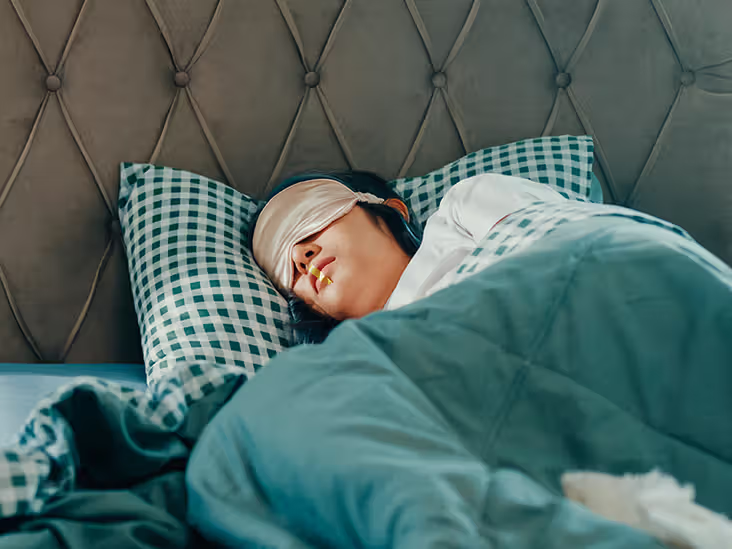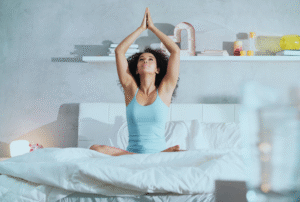Good sleep and relaxation are more than just indulgences; they are necessities for a healthy, balanced life. Yet, in the rush of work, family, and daily responsibilities, restorative rest often takes a back seat. The result? A rising epidemic of sleep deprivation and stress-related health concerns.
This guide explores how sleep and relaxation impact your overall well-being, practical ways to improve them, and steps to overcome common sleep challenges. Get ready to unlock the restful life you deserve.
Why Sleep and Relaxation Matter
Sleep and relaxation are essential pillars of health, but understanding their importance begins with knowing their deep ties to mental, physical, and emotional well-being.
The Science of Sleep
When you sleep, your body shifts gears into repair and regeneration mode. Your brain processes memories, your immune system strengthens, and your hormones regulate themselves. Adults need 7-9 hours of quality sleep per night to function at their best. But chronic sleep deprivation can lead to a host of issues, including:
- Increased risk of heart disease, diabetes, and obesity
- Impaired cognitive function and memory
- Emotional instability and heightened stress levels
Why Relaxation Is Just as Crucial
Relaxation helps reduce stress hormones like cortisol, improves focus, and enhances overall mental clarity. Relaxation techniques, such as mindfulness or yoga, also contribute to cardiovascular health and emotional resilience. Together, sleep and relaxation form the foundation for peak performance and a happier, healthier self.
Create a Relaxing Bedtime Routine
If your nights are more about tossing and turning than restorative sleep, a bedtime routine could make all the difference. Here’s how to build one that works:
- Establish a Consistent Sleep Schedule
Going to bed and waking up at the same time every day helps regulate your internal clock.
- Wind Down 30–60 Minutes Before Bed
Create a calming pre-sleep ritual. Take a warm bath, read a book, or practice deep breathing exercises.
- Avoid Screens
Electronic devices emit blue light, which interferes with your body’s production of melatonin, the sleep hormone. Aim to power down screens at least an hour before bed.
- Set the Mood
Dim lights and use calming scents like lavender or chamomile to signal your body that it’s time to relax.
- Limit Late-Night Eating and Caffeine
Heavy meals and stimulants close to bedtime can disrupt your ability to fall and stay asleep.
Diet and Lifestyle Tips for Better Sleep
How you live during the day impacts how well you sleep at night. Below are some proven tips to promote better rest through diet and lifestyle:
Sleep-Boosting Foods
- Magnesium-Rich Foods
Reduce muscle fatigue with magnesium-filled snacks like almonds, bananas, and spinach.
- Foods High in Tryptophan
Tryptophan is an amino acid that aids serotonin production, which helps you relax. Think turkey, eggs, and nuts.
- Chamomile Tea
Known for its mild sedative effect, a soothing cup before bed can ease you into slumber.
Lifestyle Tweaks
- Exercise Regularly
Aim for at least 30 minutes of moderate activity daily; just avoid vigorous workouts close to bedtime.
- Stay Hydrated (but not late at night)
Drink plenty of water throughout the day but cut back an hour or two before bed to avoid disruptive bathroom trips.
Top Relaxation Techniques for Stress Relief and Better Sleep
Stress is one of the biggest enemies of good sleep. Incorporate these techniques into your daily life to calm your mind and prepare your body for rest:
1. Mindfulness Meditation
Practice mindfulness by focusing your attention on your breath or sensations in your body. Apps like Calm or Headspace can guide you.
2. Progressive Muscle Relaxation
Tense and release each muscle group, starting at your toes and working up to your head.
3. Yoga
Gentle poses like child’s pose or seated forward bends help reduce tension and prepare your body for sleep.
4. Guided Imagery
Picture peaceful scenes, like a beach or forest, while listening to calming background music.
Overcoming Common Sleep Challenges
No matter how hard you try, some nights may still feel like a battle. Here’s how to address common sleep problems:
- Trouble Falling Asleep: Try melatonin supplements (consult your doctor first) to help reset your sleep cycle.
- Waking Up Frequently: Reduce evening stressors and avoid alcohol, which can fragment your sleep.
- Daytime Sleepiness: Get more exposure to natural daylight. This helps reinforce a healthy sleep-wake rhythm.
Customize Your Sleep Environment for Maximum Relaxation
Your environment can make or break your sleep quality. Here are some helpful tips:
Optimize Your Bedroom for Sleep
- Upgrade Your Bedding: Use comfy pillows and a supportive mattress.
- Control Temperature: Studies suggest 60–67°F is the sweet spot for good sleep.
- Remove Noise and Light: Use blackout curtains, a sleep mask, or white-noise machines to minimize disruptions.
Rest, Recharge, and Revitalize
There’s nothing quite as transformative as good sleep paired with daily relaxation. By understanding its importance, adopting a bedtime routine, adjusting your lifestyle, and creating a calming environment, you can reclaim your nights and revitalize your days.
Start small. Try incorporating one or two changes this week and observe the difference. For even more personalized tips that align with your lifestyle, consult a sleep specialist or wellness coach.
Frequently Asked Questions (FAQ)
Q1. What’s the ideal amount of sleep I need per night?
Most adults need 7–9 hours of sleep per night to function optimally.
Q2. Can naps make up for lost sleep?
Short naps (20–30 minutes) can boost alertness, but they won’t fully compensate for chronic sleep deprivation.
Q3. How long does it take to build a successful sleep routine?
It varies, but a consistent effort over 2–4 weeks often yields noticeable results.
Q4. What should I do if I suspect I have a sleep disorder?
Consult a sleep specialist who can diagnose and recommend treatments for conditions like sleep apnea or insomnia.




